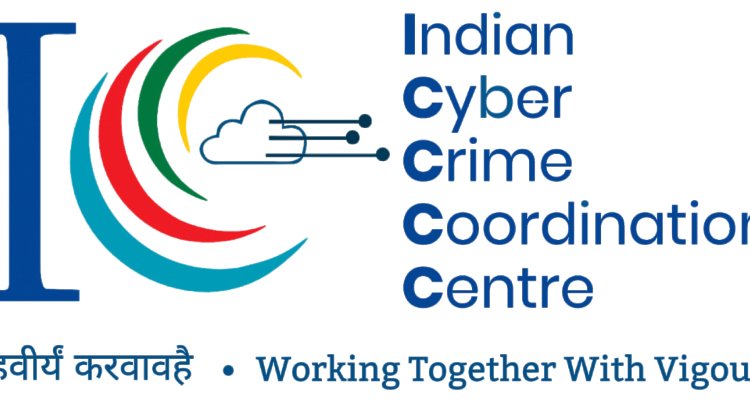Delhi Police Bust International Cyber Crime Network Using Digital Footprints from Flipkart, Swiggy & Zomato
This article covers a ₹22 lakh international cyber fraud busted by Delhi Police using digital footprints from Flipkart, Swiggy, Zomato, and WhatsApp logs. It highlights how cybercriminals used fake trading platforms, mule accounts, and money laundering routes involving Malaysia and Dubai.

Delhi Police Bust ₹22 Lakh Cyber Fraud Syndicate Operating Across Four States and Two Countries
In a significant breakthrough against organized cybercrime, the Delhi Police dismantled a pan-India digital fraud network involved in duping a software engineer of ₹22.06 lakh. The operation, executed over nine days and spanning 1,800 kilometers across four states, culminated in the arrest of seven individuals, unearthing a complex web of international financial fraud and digital deception.
Genesis of the Case
The investigation was launched following a complaint by Mukesh Kumar, a software engineer from Burari, who reported a loss of over ₹22 lakh after responding to a Facebook advertisement impersonating Upstox, a legitimate trading platform.
After clicking on a ‘Start Trading’ link, Kumar was redirected to a WhatsApp group named ‘Up Success Express’, where he was manipulated through fake profit screenshots and fabricated testimonials. A handler identifying himself as Kapil Jaikalyani, posing as the director of ‘Upstox Securities Private Limited’, falsely claimed SEBI registration, thus lending credibility to the scam.
Initially offered small profits to build trust, Kumar ultimately transferred ₹22.06 lakh across several transactions. His attempts to withdraw the funds failed, and soon after, all communication with the handlers was blocked.
Digital Trail and Technical Breakthroughs
A case was registered on June 9, leading to the formation of a special task force under Inspector Rohit Gahlot and SI Arvind Yadav. The investigation team employed a combination of technical surveillance, digital forensics, and human intelligence to trace the accused.
Crucial digital evidence was extracted from:
-
WhatsApp logs
-
Google Lens data
-
IP addresses
-
Email ID footprints
-
Delivery app metadata (Flipkart, Swiggy, Zomato)
The scam was found to operate in a three-tier structure, with handlers in Malaysia, field operatives in India, and financial conduits in Dubai.
Arrest Timeline and Operational Chains
1. Fake Company Network (Delhi–Gurgaon)
On October 6, the police arrested Atul Kumar from Gurgaon, followed by Prashant Singh and Bhavesh Kumar Khan, an MBA in HR. They had established a fictitious company, ‘Mostly Social Technology Private Limited’, through which they opened corporate bank accounts and sold access credentials to handlers in exchange for a 3% commission.
These accounts were then used to channel fraudulent funds into online gaming wallets and cryptocurrency platforms.
2. Jhunjhunu Nexus (Rajasthan)
On October 9, raids in Sultana, Jhunjhunu led to the arrest of Sumit Jhajharia and Yogesh Kumar. Jhajharia admitted to selling bank accounts to Yogesh for 8% commission, who in turn passed them to a Dubai-based relative Rahul for 10%. All transactions were facilitated using remote scanners and coordinated from within Jhunjhunu.
3. Alwar–Delhi Chase
On October 14, police arrested Gourav from Sanganer. His interrogation led to a pursuit across Alwar and Delhi, resulting in the capture of Vivek Kumar Sattawan. These individuals supplied mule accounts to one Saddam from Mewat, who managed funds for further laundering. Although suspects had deleted chat histories, forensic teams are working on data recovery.
International Linkages and Laundering Modus Operandi
The scam involved:
-
Malaysia-based handlers orchestrating the fraud
-
Dubai-based operatives laundering money
-
Use of mule accounts, online gaming, and crypto wallets to layer and divert funds
Analysis of WhatsApp group admins confirmed that servers and key operations were run from Malaysia, while funds flowed into Dubai through systematically disguised transfers.
Impact and Ongoing Investigation
The cybercrime unit has since linked 46 similar complaints via the National Cybercrime Reporting Portal (NCRP), using the same bank accounts. So far, ₹8.58 lakh has been frozen/held in various accounts connected to the primary accused.
All seven arrested individuals are currently in judicial custody, while efforts are ongoing to apprehend remaining suspects, including:
-
Aman (handler)
-
Rahul (Dubai-based)
-
Saddam (Mewat-based)
Conclusion
This case highlights the evolving sophistication of cyber fraud operations, the global dimensions of financial crime, and the critical need for public awareness and digital vigilance. The Delhi Police's coordinated operation demonstrates that persistent digital tracking and inter-agency cooperation can dismantle even the most elusive cyber syndicates.
Follow cyberdeepakyadav.com on
Facebook, Twitter, LinkedIn, Instagram, and YouTube
What's Your Reaction?























